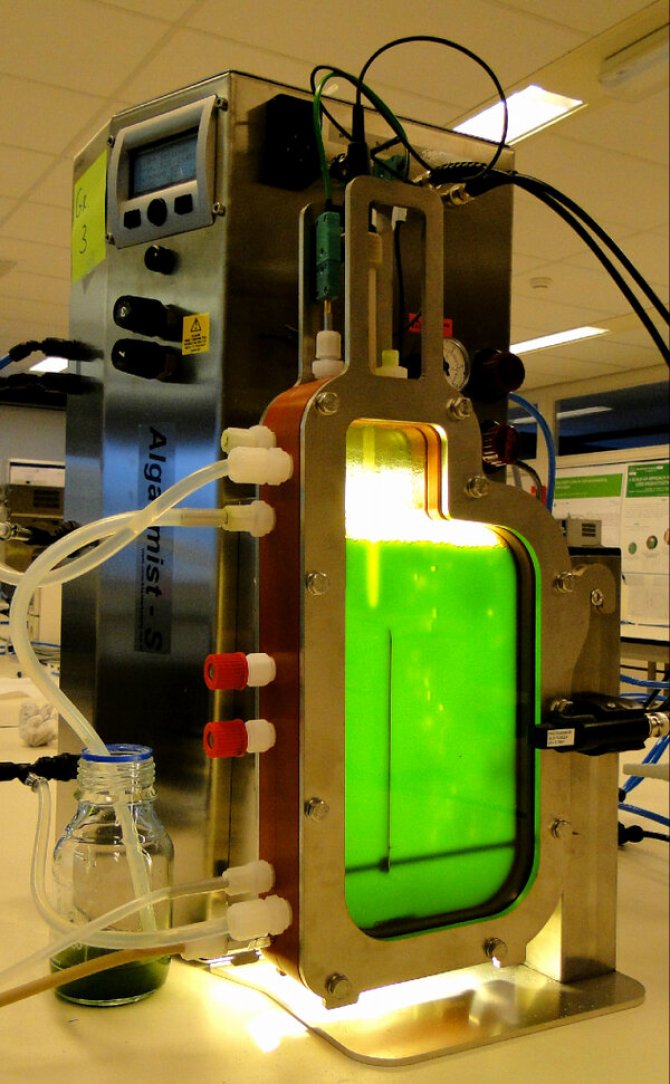
Project
Microalgae Biorefinery 2.0 (MAB 2.0)
Microalgae cultivation provides a means to combine recovery of nutrients and carbon dioxide from wastewater and flue gas with the production of biomass. Microalgae growth can be affected by other components within wastewater and flue gas. For this reason, the performance of selected microalgal strains will be assessed on real waste water and flue gas, under simulated outdoor condition.
Introduction
The demand for fresh water and the production of waste water are issues that rise hand in hand as urbanization increases and populations expand. Throughout the world large amounts of wastewater, which are often characterized by high nutrient loads causing eutrophication, could provide up to 80% of the need of freshwater when properly remediated. Moreover, nutrients such as phosphate represent a relevant resource which after recovery could be re-applied in agriculture. A relevant example is the effluent of anaerobic digesters. This digestate is characterized by a high ammonium and phosphate content which must be removed and is preferably recovered within useful products.
Microalgae are highly efficient in removing nitrogen, phosphorus, from a wide variety of wastewater streams and are able to grow on flue gas as a CO2 source, hence they can provide a system that combines recovery of nutrients with production of biomass for reuse. Specifically Microalgae biomass production on digestate and flue gas offers an excellent opportunity for production of a broad range of products. However, high nutrient loadings, and the possible presence of toxic compounds could affect algae growth reducing productivity and leading to culture instability.
Aim
The MAB 2.0 project aims to demonstrate technological and commercial concepts for integration of 1) algae cultivation technology within municipal wastewater treatment plants to remove nutrients and enhance water quality, and 2) to perform biorefinery of algae biomass into valuable, biobased products.
Approach
In order to select algae strains able to cope with these conditions, we develop a robust strain selection protocol reflecting industrial conditions. The selected algal strain(s) should be adapted to grow in the effluent of an anaerobic digester gassed with flue gas. Microalgae productivity and nutrient removal will is optimized and the potential of refining the biomass to a range of products is explored. The performance of the selected strain will be assessed by lab scale cultivation on real waste water and flue gas, under simulated outdoor condition. Results will be used to develop an optimized protocol for algae cultivation on the effluent of anaerobic digesters in waste water treatment plants.
Thesis project
There are different topics available for BSc or MSc thesis within the project! If you are interested, please feel free to contact:
Acknowledgment
The project is part of the project MicroAlgae Biorefinery 2.0 (MAB 2.0) and is supported by Climate KIC, one of the Knowledge and Innovation Communities (KICs) created and sponsored by the European Institute of Innovation and Technology (EIT), the EU body tasked with creating sustainable European growth while dealing with the global challenges of our time.
